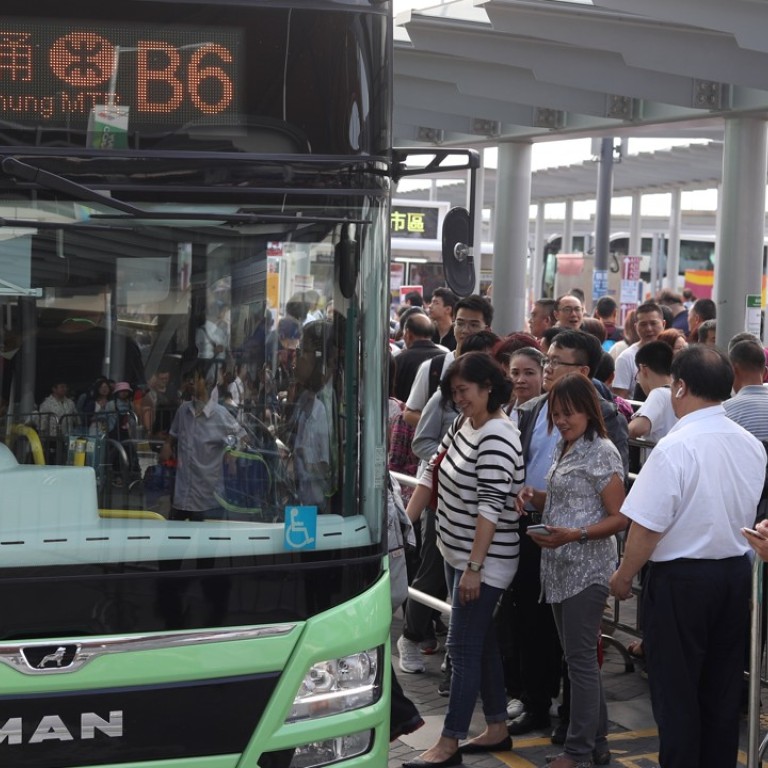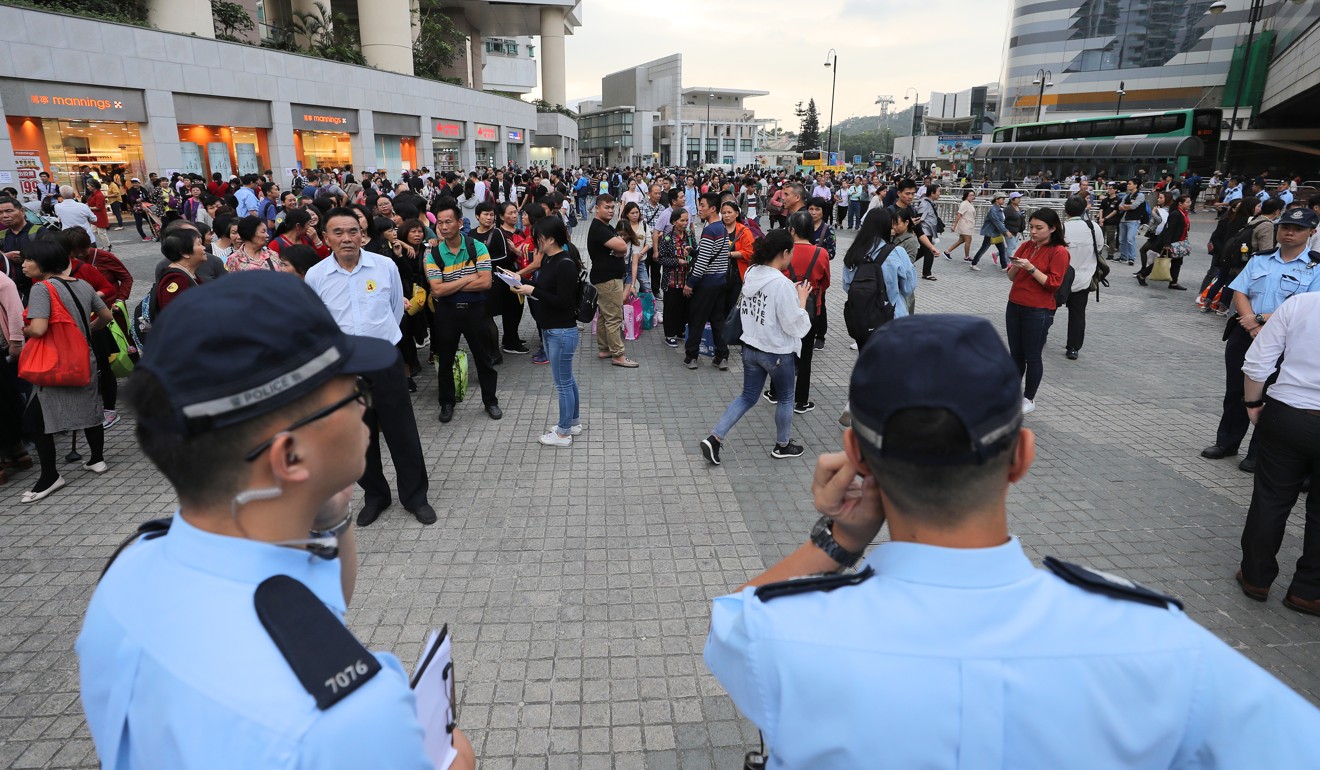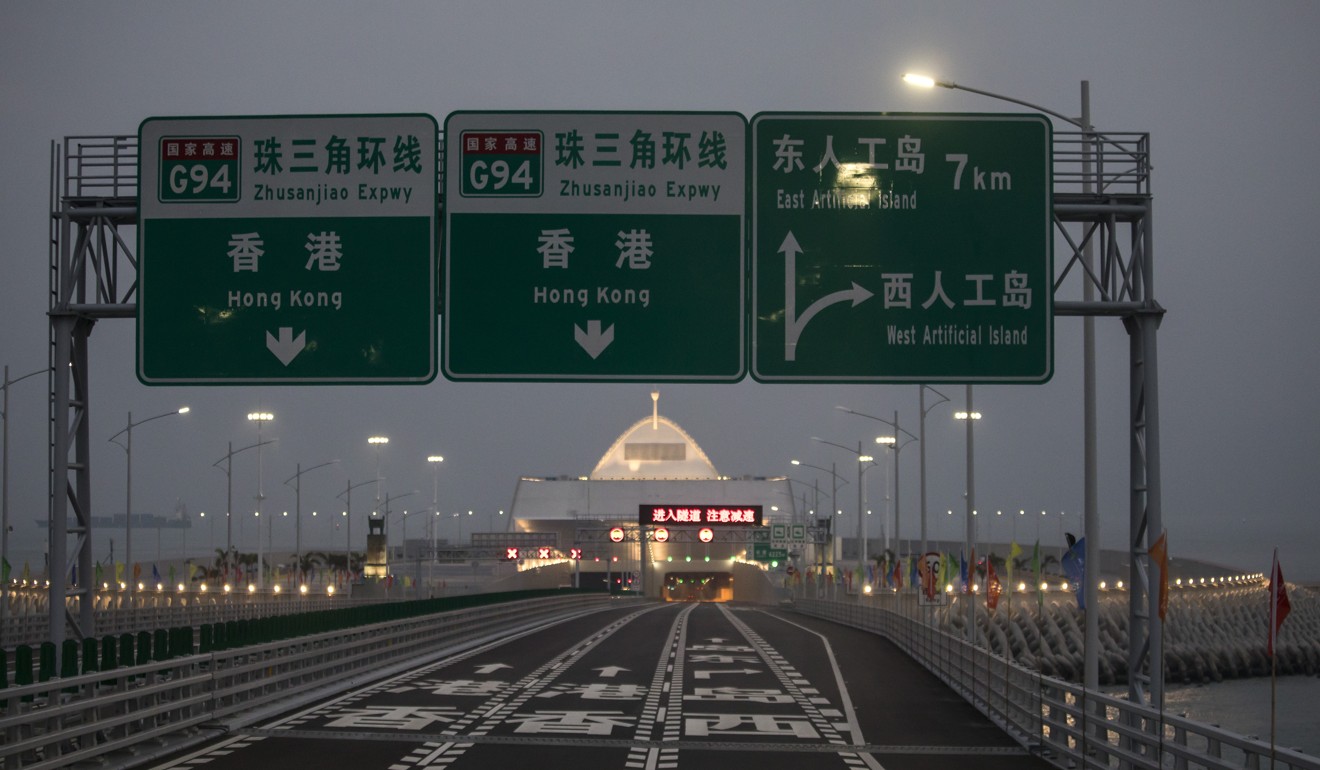
Ban on mainland Chinese tourists using mega bridge to Hong Kong at weekends only in effect for 2 days, Guangdong’s top tourism official says
- Wang Yiyang, head of Guangdong Provincial Culture and Tourism Department, says suspension was only for November 24 and 25
- Concern group attributes drop in visitor numbers to restrictions on sale of tickets for shuttle buses
An order to halt all one-day weekend trips to Hong Kong via a mega cross-border bridge to reduce the nuisance to the city’s residents was only in effect for 48 hours in November, Guangdong province’s top tourism official told the Post on Wednesday.
Speaking on the sidelines of the Hong Kong International Tourism Convention, Wang Yiyang, head of the Guangdong Provincial Culture and Tourism Department, said the suspension of one-day weekend trips to Hong Kong via the bridge was only in effect on the weekend of November 24 and 25.
“The trips resumed after that but we didn’t see a surge in groups,” Wang said.

Wang’s department said in a written reply to the Post on November 29 that one-day weekend tours were suspended, but without saying for how long.
The move came after tourism authorities in the provincial capital, Guangzhou, issued an urgent notice on November 22 asking travel agencies to avoid taking visitors across the bridge at weekends.
After the crossing opened to traffic on October 24, there had been an influx of mainland visitors to the usually quiet neighbourhood of Tung Chung.
Relief for Tung Chung residents as mega bridge crowds ease
Between October 17 and November 1, more than 1.78 million visas to Hong Kong and Macau were issued across Guangdong – mostly to retirees – a 26.6 per cent year-on-year increase, according to the province’s public security department.
Aside from the large crowds upsetting Tung Chung residents and activists, there were also allegations that illegal tour operators were flouting employment laws that prevent mainlanders from working in Hong Kong.
Wang said unlicensed tour guides had been “largely cleared from the market” after tighter scrutiny of qualifications.
“What we ought to do is strengthen regulations,” Wang said. “Length of trips should be decided by the market.”
Guan Jian, a marketing manager of Guangzhilv, a major tour agency based in Guangzhou, said the one-day weekend trips have never been removed from the company’s offerings.
Fewer visitors cross mega bridge following tourist boards’ warning
“We operate one group with 30 visitors each day at weekends,” Guan said on Wednesday.
The rush had faded in recent weeks and the trips’ popularity had “returned to the level of normal seasons”, Guan added.
At the Legislative Council on Wednesday, Secretary for Development Michael Wong Wai-lun said in early December the daily average flow of passengers at the bridge’s port near Tung Chung had dropped by 5,000 to 11,000, and the number at peak periods had fallen from 100,000 to between 60,000 and 70,000.

Traffic diversion measures that bus operators rolled out last month were the reason, Wong said.
Port-to-port shuttles, popularly known as “golden buses” for their colour, announced last month that from November 24, mainland passengers departing from Zhuhai to Hong Kong would have to pre-order their tickets online or pay more to get them over the counter. In addition, each person was allowed to buy at most 10 tickets online.
Bridge, rail link pull highest ever October mainlander arrivals at 4.65 million
B6, a bus route to Tung Chung West, increased rides during evening peaks and stepped up supervision of the stop outside the port from November 10.
Lau Wing-yin, 27, co-founder of the Tung Chung Concern Group, said the restriction of shuttle bus ticketing contributed most to the fall in mainland tourists.
“The big drop came after the restriction, and I didn’t see them coming back in the past two weeks,” Lau said.
Tung Chung residents were relieved as shops, restaurants and public spaces were less crowded. But the drop in customers disappointed businesses, Lau said.
“There were chaos because the government didn’t get the community ready by providing sufficient facilities before it opened the bridge in haste,” Lau said.
Wang from Guangdong agreed that Hong Kong was not well prepared.
“Hong Kong didn’t expect so many tourists and didn’t think about how to guide them to other parts of the city,” he added. “When facilities are not sufficient, people will feel more pressure.”


